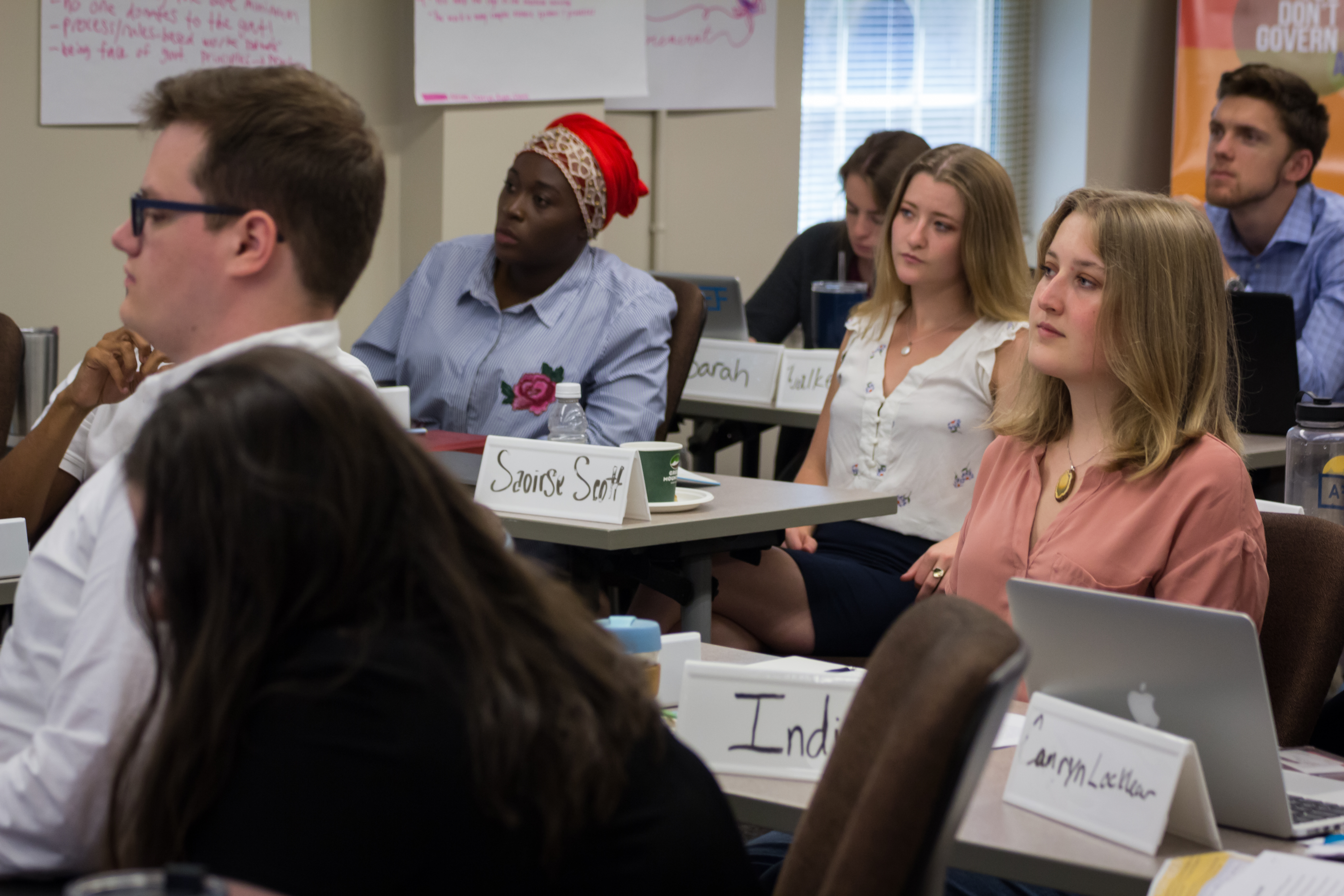Lead for North Carolina Fellows Assist with COVID-19 Response
The daily operations of North Carolina’s municipalities and counties have been heavily impacted by the COVID-19 outbreak in our state. As local governments grapple with the ripple effects of the pandemic, Lead For North Carolina (LFNC) Fellows are on the working on the front lines of response efforts in their communities.
Read on for snapshots of the work eight fellows are doing to support COVID-19 response.
--
Sarah Arney (Kinston): Arney crafted the script for a video response by the city council regarding Kinston's response to COVID-19. She also helped edit the mayor's official response following the stay-at-home order. She continues to share the most up-to-date COVID-19 information on the city's social media platforms. Arney is modifying existing projects like the 2020 U.S. Census response and a pedestrian survey to continue under altered circumstances.
Liam Brailey (Anson County): Brailey, in his role as special assistant to the county manager, has sat in on multiple meetings and contributed ideas on how to protect staff. Brailey issued contracts with manufacturers to obtain personal protection equipment for emergency responders. He has expanded capacity for others by taking the lead on projects so staff can focus on the county's COVID-19 response.
Ryan Fenton (Fairmont): Fenton is responsible for managing intergovernmental relations with the state, FEMA, and the Town of Fairmont. Using his experience from Hurricane Florence, Fenton is working to compile the costs the Town is incurring from COVID-19 for FEMA Public Assistance purposes.
Drew Finley (Hendersonville): Drew has provided essential summaries to department heads and city officials regarding Governor Roy Cooper's Executive Order 124 to support the utilities department. Finley also attended webinars from industry professional organizations such as the American Water Works Association and the Water Environment Federation to provide COVID-19 recommendations and up-to-date information to decision makers.
India Mackinson (North Topsail Beach): Mackinson is responsible for the town's COVID-19 crisis communications. She has written multiple press releases on the local State of Emergency declaration, created a comprehensive COVID-19 resource page on the town's website, and kept residents informed through social media posts. Before the pandemic, Mackinson launched a new email notification and news center platform for the town website to streamline and improve communications with the public. In the month since its launch, subscriptions to this platform have increased more than 76 percent.
Allison Marshall (Shallotte): Marshall made sure Shallotte was ready for teleworking and conducting virtual and electronic meetings. She purchased new laptops for town employees, installed software for teleworking, set up Zoom meetings, and ensured compliance with open meeting laws. She has also written public notices for all virtual meetings, researched grants, and sat in on webinars and conference calls to support town staff.
Saoirse Scott (Edenton): Scott has helped make town services virtual. She created guides explaining how to set up online accounts and pay utility bills online or over the phone. She has handled all of Edenton's communications for COVID-19, including filming, editing, and posting various videos from the mayor and chair of the Chowan County Commissioners to inform the public on general updates. She also created a Zoom account on behalf of the town and created guidelines regarding Zoom usage.
Shom Tiwari (Elizabeth City): Tiwari wrote the continuity of operations plan for his city’s Public Utilities Department. This document identified essential functions, essential personnel, back-fill plans for department leadership key vendors, and other considerations based on federal agency and professional association guidelines. Tiwari also compiled and edited submissions from each department for this plan. Tiwari has attended webinars from the School of Government on COVID-19-related topics such as utility finance and bridge loans for small businesses.
--
The School of Government is proud to partner with and provide support to North Carolina’s local governments during the COVID-19 outbreak. Click here to visit all the School’s resources and videos related to pandemic response.
Lead for North Carolina aims to recruit, train, and place the state’s most promising young leaders in paid local government fellowships as a means of strengthening our public institutions, supporting our local communities, and cultivating a new generation of public service leaders. To learn more about LFNC’s mission and fellows, click here.
Published May 7, 2020



